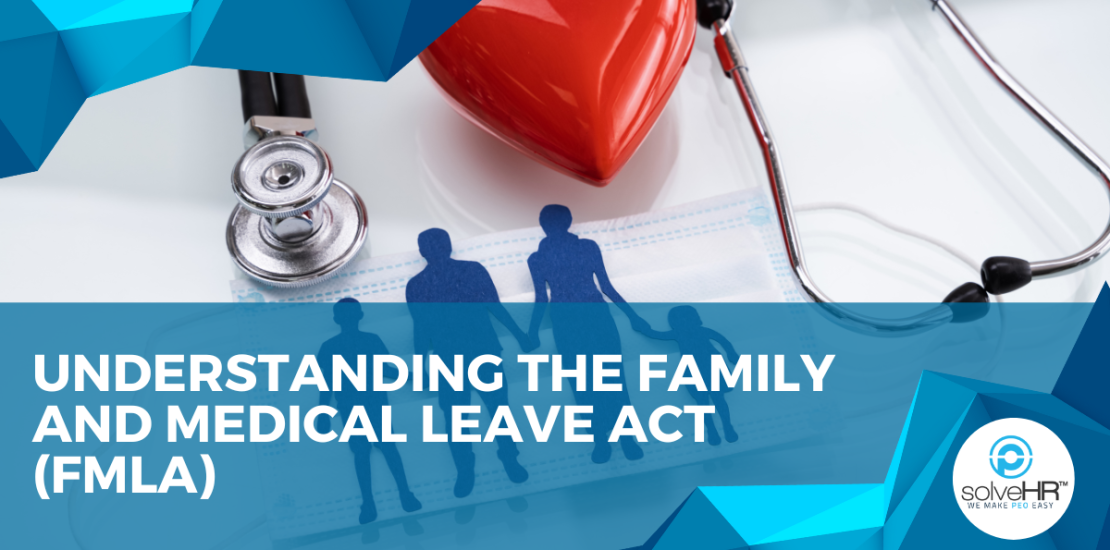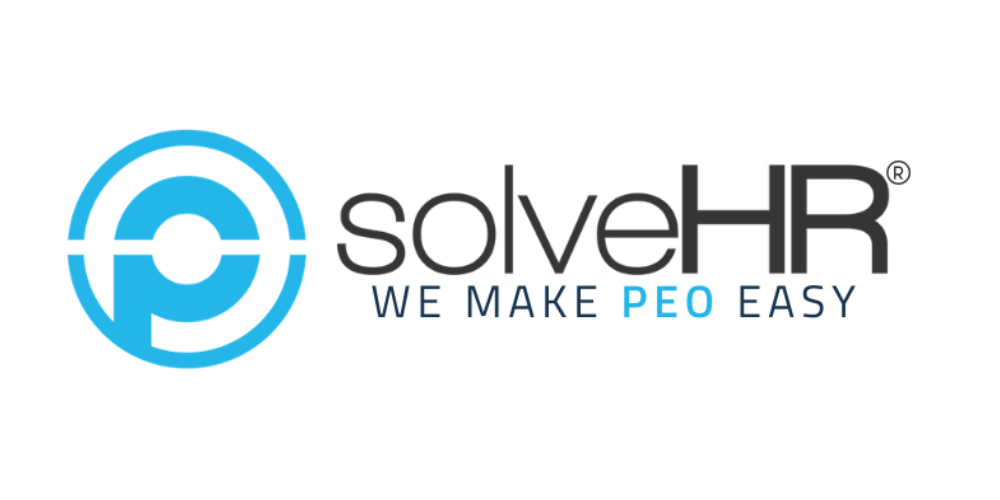Understanding the Family and Medical Leave Act (FMLA): Requirements for Small Businesses
- 04/23/2025
- Posted by: Matt Muriel
- Category: Uncategorized

The Family and Medical Leave Act (FMLA) provides eligible employees with the right to take unpaid leave for specific family and medical reasons without fear of losing their job. While FMLA is critical to supporting employees during times of need, navigating its requirements can be challenging—particularly for small businesses that may not have a dedicated HR team. In this post, SolveHR will walk through the essentials of FMLA and what small businesses need to know about compliance, eligibility, and best practices.
What is FMLA?
The FMLA is a federal law that allows eligible employees to take up to 12 weeks of unpaid, job-protected leave each year for qualifying family and medical reasons. This law was designed to help employees manage their personal and family health needs without sacrificing job security. While FMLA applies to most employers with 50 or more employees, understanding its structure is essential for small businesses to maintain compliance and support employee well-being.
FMLA Coverage for Small Businesses
Small businesses with fewer than 50 employees are generally not legally required to comply with FMLA. However, many states have their own family and medical leave laws, some of which may apply to smaller businesses. Additionally, offering FMLA-like benefits can help small businesses retain talent by demonstrating commitment to employee support and work-life balance.
FMLA Eligibility Requirements
For businesses that do fall under FMLA, employees must meet certain criteria to qualify for leave:
- Employment Duration: The employee must have worked for the employer for at least 12 months, though these months do not need to be consecutive.
- Hours Worked: The employee must have worked at least 1,250 hours during the 12 months before the leave begins.
- Worksite Proximity: The employee’s worksite must have at least 50 employees within a 75-mile radius.
Qualifying Reasons for FMLA Leave
Eligible employees can take FMLA leave for a variety of family and medical reasons, including:
- Personal Health Issues: For the treatment of a serious health condition that prevents the employee from performing essential job functions.
- Family Health Issues: To care for a spouse, child, or parent with a serious health condition.
- Childbirth or Adoption: For the birth of a child, adoption, or foster care placement, allowing new parents to bond with their child.
- Military Caregiver Leave: To care for a family member who is a covered military service member with a serious injury or illness.
- Exigency Leave: For urgent needs related to a family member’s military deployment.
FMLA Compliance Requirements
FMLA compliance involves several responsibilities, including notifying employees of their rights, tracking leave, and ensuring job protection. Here are key requirements for small businesses that may consider implementing FMLA-like policies:
- Employee Notification and Rights
- Employers must notify eligible employees of their rights under FMLA and provide information about how to request leave. Notices should be clear, accessible, and available in employee handbooks or company policy documents.
- If your business chooses to offer FMLA-like leave voluntarily, make sure employees understand eligibility criteria, the process for requesting leave, and what documentation is required.
- Documentation and Recordkeeping
- To remain compliant, businesses must maintain records of FMLA requests, including dates of leave, medical certifications, and communications regarding leave approval or denial.
- For voluntary leave programs, it’s wise to adopt similar documentation practices. Detailed recordkeeping will help ensure consistency, maintain accountability, and provide evidence in the event of legal questions.
- Job Protection and Return to Work
- Under FMLA, employees who take leave are guaranteed the right to return to the same or an equivalent position upon return. This is one of the most important aspects of FMLA, as it assures employees they won’t lose their jobs while attending to personal or family health needs.
- If your small business chooses to offer leave benefits similar to FMLA, consider implementing policies that protect an employee’s job to foster trust and employee satisfaction.
Pros and Cons of Offering FMLA-like Benefits
For small businesses not legally required to offer FMLA, implementing FMLA-like policies can be beneficial. Here are some pros and cons to consider:
Pros:
- Employee Retention: Providing job-protected leave can reduce turnover and increase employee loyalty, especially among employees with caregiving responsibilities.
- Positive Culture: Offering leave for family and medical reasons reflects a culture of support and work-life balance, which appeals to employees and candidates alike.
- Competitive Edge: Businesses that offer voluntary leave can stand out to candidates in competitive hiring markets where work-life balance is valued.
Cons:
- Resource Constraints: Small businesses with limited staff may struggle to accommodate extended employee absences.
- Financial Strain: Covering for employees on leave may require hiring temporary staff or paying overtime, which can impact budget.
- Complexity: Tracking leave and managing compliance, especially if using FMLA as a model, can add administrative work.
Alternatives to Traditional FMLA for Small Businesses
For small businesses that may not be able to offer full FMLA-like benefits, there are alternative options to support employees:
- Short-Term Leave Options: Consider offering shorter periods of unpaid or paid leave for specific circumstances, such as two to four weeks for serious health or family-related events.
- Flexible Scheduling: Offer flexible work arrangements, such as remote work or adjusted hours, which can help employees manage personal responsibilities without taking full leave.
- Paid Time Off (PTO) Banks: A combined PTO bank for vacation, sick time, and personal days provides flexibility for employees to address health or family needs.
How SolveHR Can Help with Leave Compliance
At SolveHR, we understand the challenges small businesses face when balancing employee needs with operational demands. We offer guidance on designing family and medical leave policies tailored to your business’s capacity and goals. Our experts also assist with documentation, leave tracking, and compliance to simplify the process and ensure you’re providing fair, supportive options for your team.
While small businesses may not always be subject to FMLA, understanding its requirements can help in crafting policies that support your employees’ family and medical needs. Providing leave options, even on a voluntary basis, can enhance employee satisfaction, improve retention, and foster a positive workplace culture. If you’re looking for guidance on creating leave policies or navigating compliance, contact SolveHR today. We’re here to support your business every step of the way.

